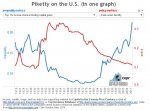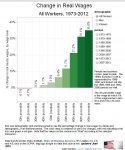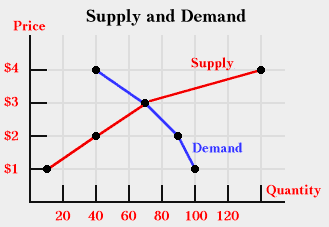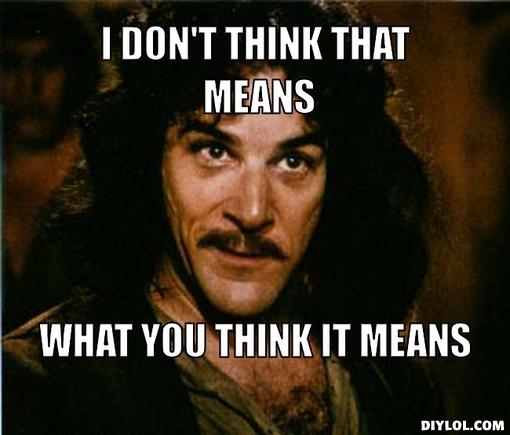GBFAN
Well-known member
- Joined
- Oct 30, 2013
- Messages
- 945
- Reaction score
- 295
- Location
- Colorado Springs, CO
- Gender
- Male
- Political Leaning
- Conservative
James Pethokoukis | October 3, 2014, 1:12 pm
100314inequality
From Mother Jones magazine, regarding the above chart (h/t to Timothy Lee):
It’s never been a bad time to be rich in America. But some times have been a lot better. In fact, the best time may be now, especially when you consider the amount of total income controlled by the top 1 percent since colonial times (with ancient Rome thrown in for comparison.
The point here, I guess, is that wealth inequality is a bad thing, and wealth inequality is as bad as its every been, and we the 99% should be outraged. From 1776 to today, a quarter millennium of exploitation of the masses! (We will, for now, set aside any debate over the data.)
But Americans are a lot better off today than they were in 1776 of 1860 or 1929 or 1960, right? I mean, that is kind of an important point. In 1800, per capita GDP — adjusted for inflation — was about $2,000 a year and average life expectancy was 39 year. Today it’s over $42,000 and 79 years. Not only would I rather live in 2014 America than in any of those other time periods, I would rather live in 2014 America than 2013 America.
The folks at Mother Jones seem so concerned with what others have, they seem to have missed all that they have — not to mention the wonders created by innovation-driven capitalism. It’s also worth noting that wealth inequality — as least measured by Thomas Piketty — was about the same in 1980 as it was in 1960 — and then it took off. But even as wealth inequality has risen, middle-class incomes have continued to rise, by some 40% in real terms.
Credit: Economic Growth: Unleashing the Potential of Human Flourishing
Credit: Economic Growth: Unleashing the Potential of Human Flourishing
Supporting charts are located at: 100314inequality | AEIdeas
100314inequality
From Mother Jones magazine, regarding the above chart (h/t to Timothy Lee):
It’s never been a bad time to be rich in America. But some times have been a lot better. In fact, the best time may be now, especially when you consider the amount of total income controlled by the top 1 percent since colonial times (with ancient Rome thrown in for comparison.
The point here, I guess, is that wealth inequality is a bad thing, and wealth inequality is as bad as its every been, and we the 99% should be outraged. From 1776 to today, a quarter millennium of exploitation of the masses! (We will, for now, set aside any debate over the data.)
But Americans are a lot better off today than they were in 1776 of 1860 or 1929 or 1960, right? I mean, that is kind of an important point. In 1800, per capita GDP — adjusted for inflation — was about $2,000 a year and average life expectancy was 39 year. Today it’s over $42,000 and 79 years. Not only would I rather live in 2014 America than in any of those other time periods, I would rather live in 2014 America than 2013 America.
The folks at Mother Jones seem so concerned with what others have, they seem to have missed all that they have — not to mention the wonders created by innovation-driven capitalism. It’s also worth noting that wealth inequality — as least measured by Thomas Piketty — was about the same in 1980 as it was in 1960 — and then it took off. But even as wealth inequality has risen, middle-class incomes have continued to rise, by some 40% in real terms.
Credit: Economic Growth: Unleashing the Potential of Human Flourishing
Credit: Economic Growth: Unleashing the Potential of Human Flourishing
Supporting charts are located at: 100314inequality | AEIdeas





